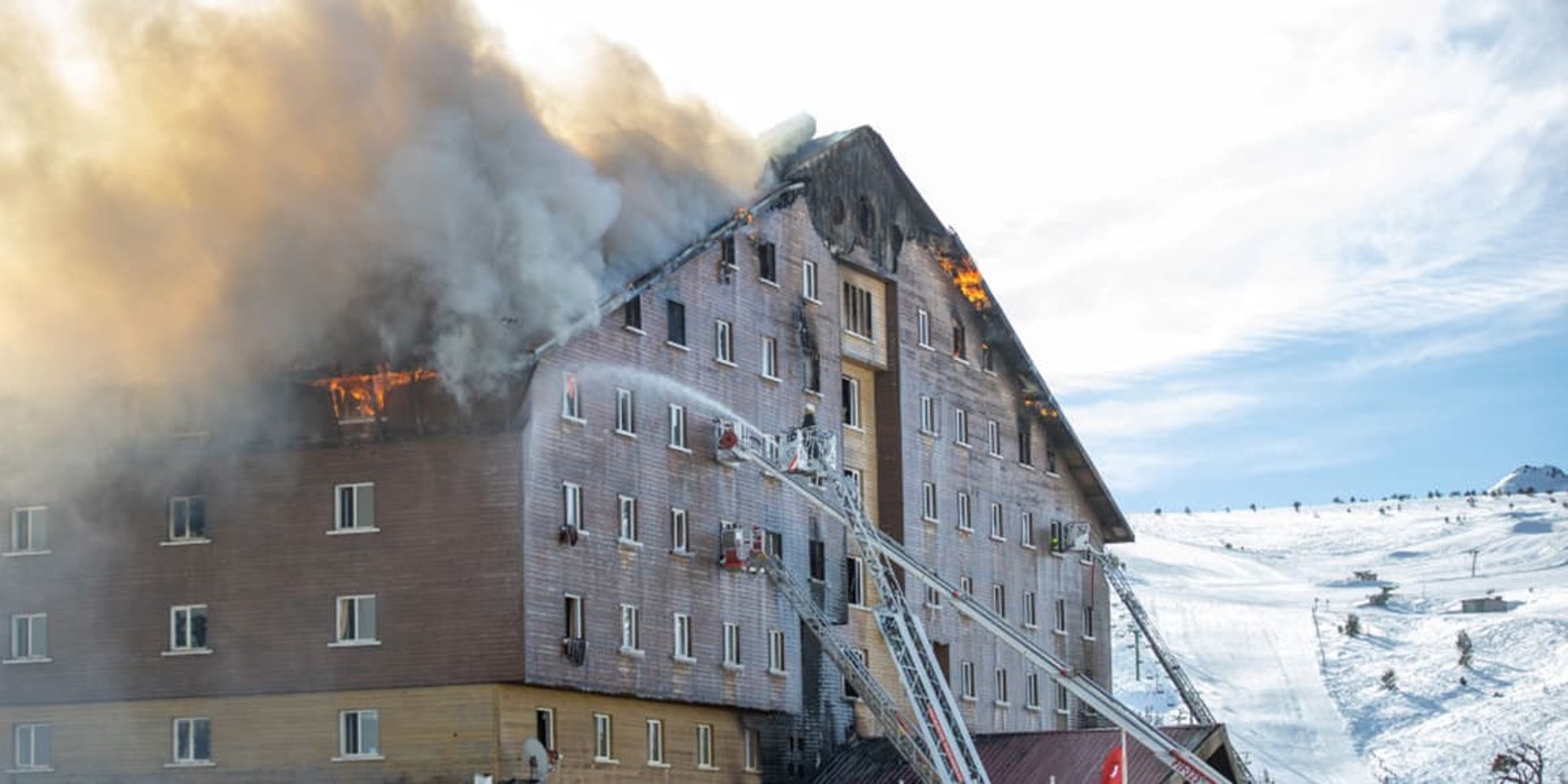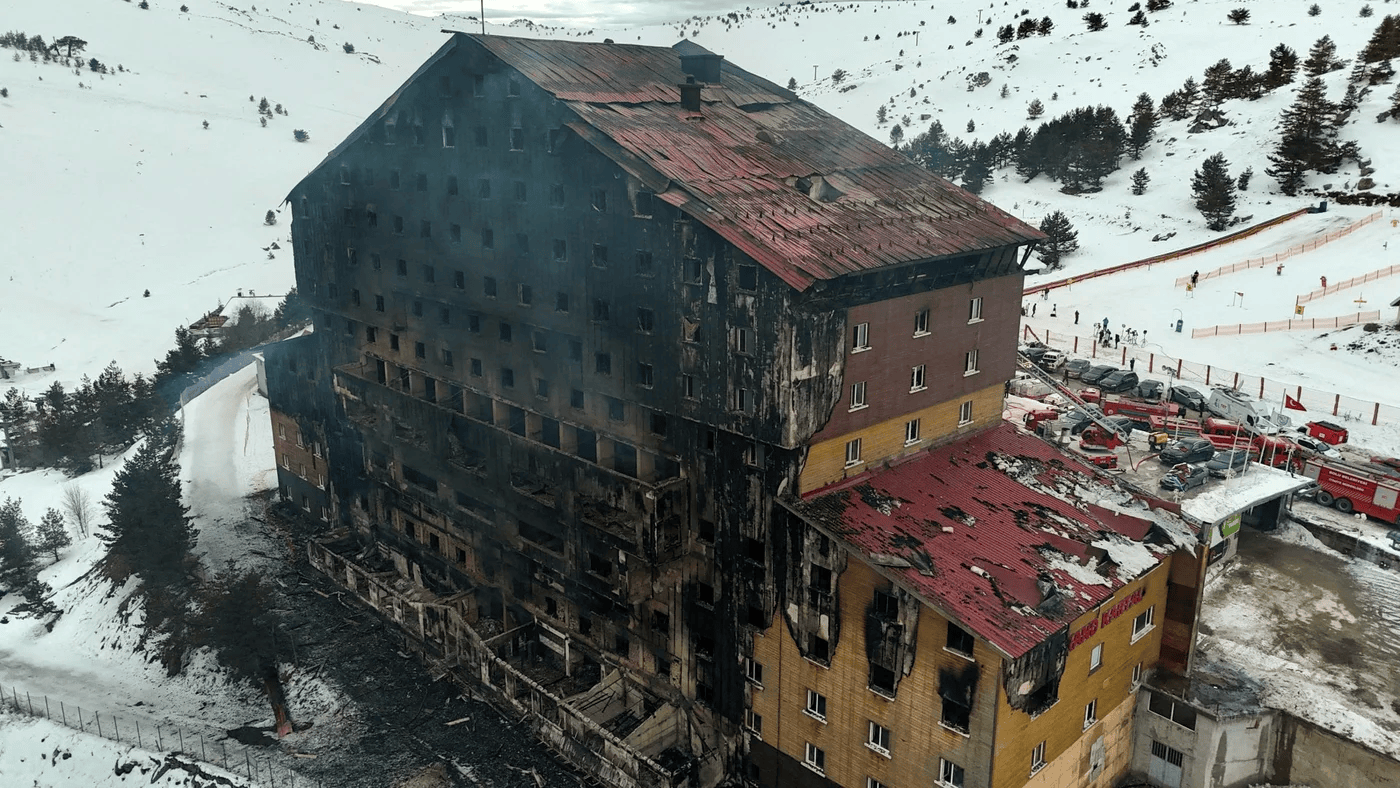Tragedy in Ski Resort Hotel
FireWatch: World Updates, February 2025
In the early hours of January 21, a catastrophic fire swept through the Grand Kartal Hotel, a ski resort in Turkey, claiming the lives of at least 78 people and injuring more than 50 others. Among the victims were both adults and children who had been staying at the hotel for a ski vacation. The first investigation into the cause of the fire that engulfed the 12-story, wooden hotel is still underway. However, a survivor commented on the safety lapses and scary escapes, by the apparent absence of a functioning fire alarm system, clearly marked fire exits, and essential fire protection measures such as sprinklers.

The presence of fire alarms and early detection systems is crucial for saving lives. The absence of a functional or effective fire alarm system delayed guests' awareness of the fire, costing them valuable time needed for a safe evacuation. Various NFPA codes and standards, widely adopted in the United States and other jurisdictions worldwide, establish minimum requirements to help prevent such tragedies.
Effective fire detection and timely occupant notification through a properly installed, maintained, and functional fire alarm system are vital for saving lives. NFPA 72®, the National Fire Alarm and Signaling Code®, sets the minimum requirements for fire detection and alarm systems in residential and commercial buildings. Similarly, NFPA 101®, the Life Safety Code®, stresses the importance of ensuring fire alarm systems remain operational and are regularly tested, enabling prompt alerts to occupants in the event of a fire, allowing for a swift and safe evacuation.
Media reports reveal that survivors struggled to locate exits amid the chaos. Many believed there was only one escape route, while some were forced to jump from windows to flee the flames. This confusion highlights the vital need for clearly marked, easily identifiable, and accessible fire exits to ensure a safe evacuation. NFPA 101 outlines clear guidelines for means of egress, including:
- Accessible, clearly marked exits.
- Two or more escape routes to ensure no single point of failure.
- Regular maintenance to keep exits unobstructed and functional.

Reports also suggest that the hotel's remote location and severe weather conditions delayed emergency responders, who took over an hour to arrive at the scene. A functioning fire alarm system could have expedited the response, as these systems provide automated emergency notifications that help fire departments react more quickly.
Was an automatic sprinkler system installed and operational? NFPA 101 mandates that all new hotels be equipped with an automatic sprinkler system in compliance with NFPA 13, the Standard for the Installation of Sprinkler Systems. Additionally, the code requires fire sprinklers in all existing high-rise hotels, defined as buildings where the floor of an occupiable story exceeds 75 feet (23 meters) above the lowest level accessible to fire department vehicles.
